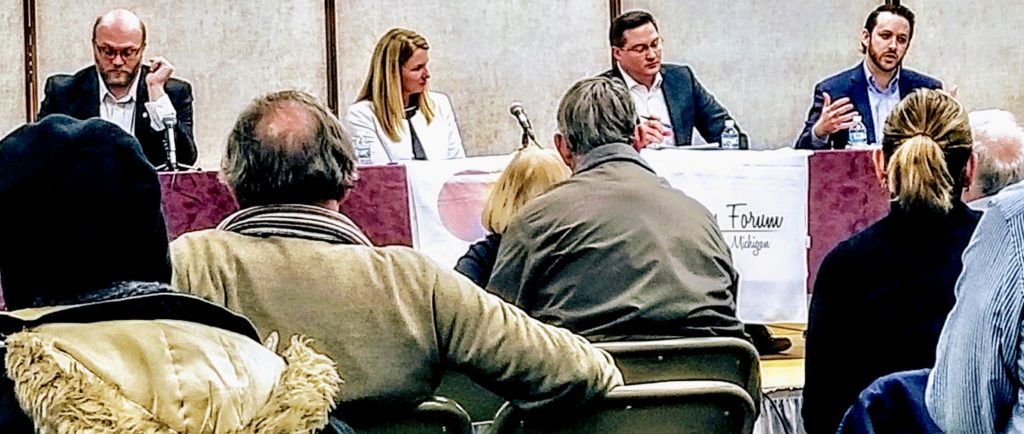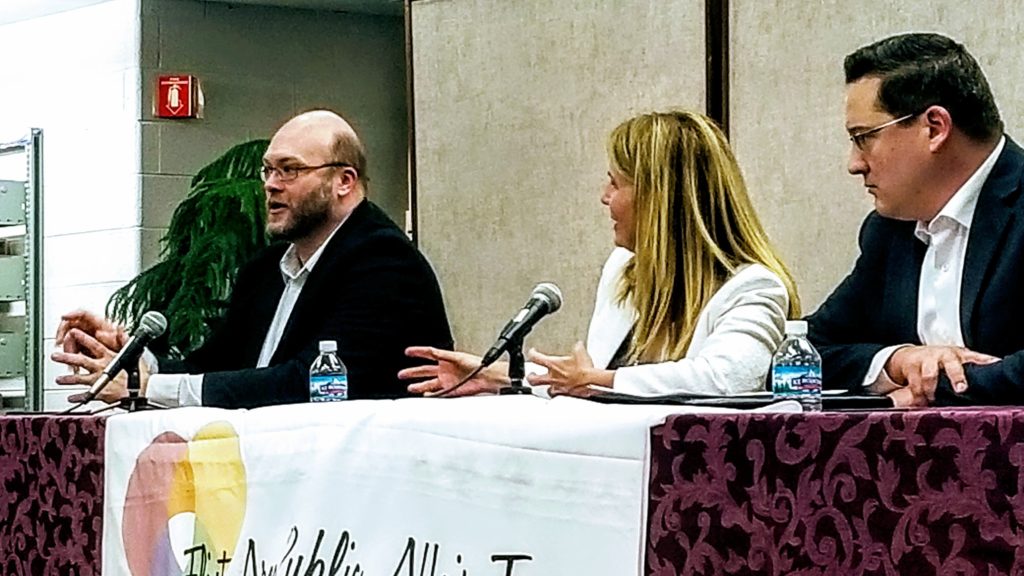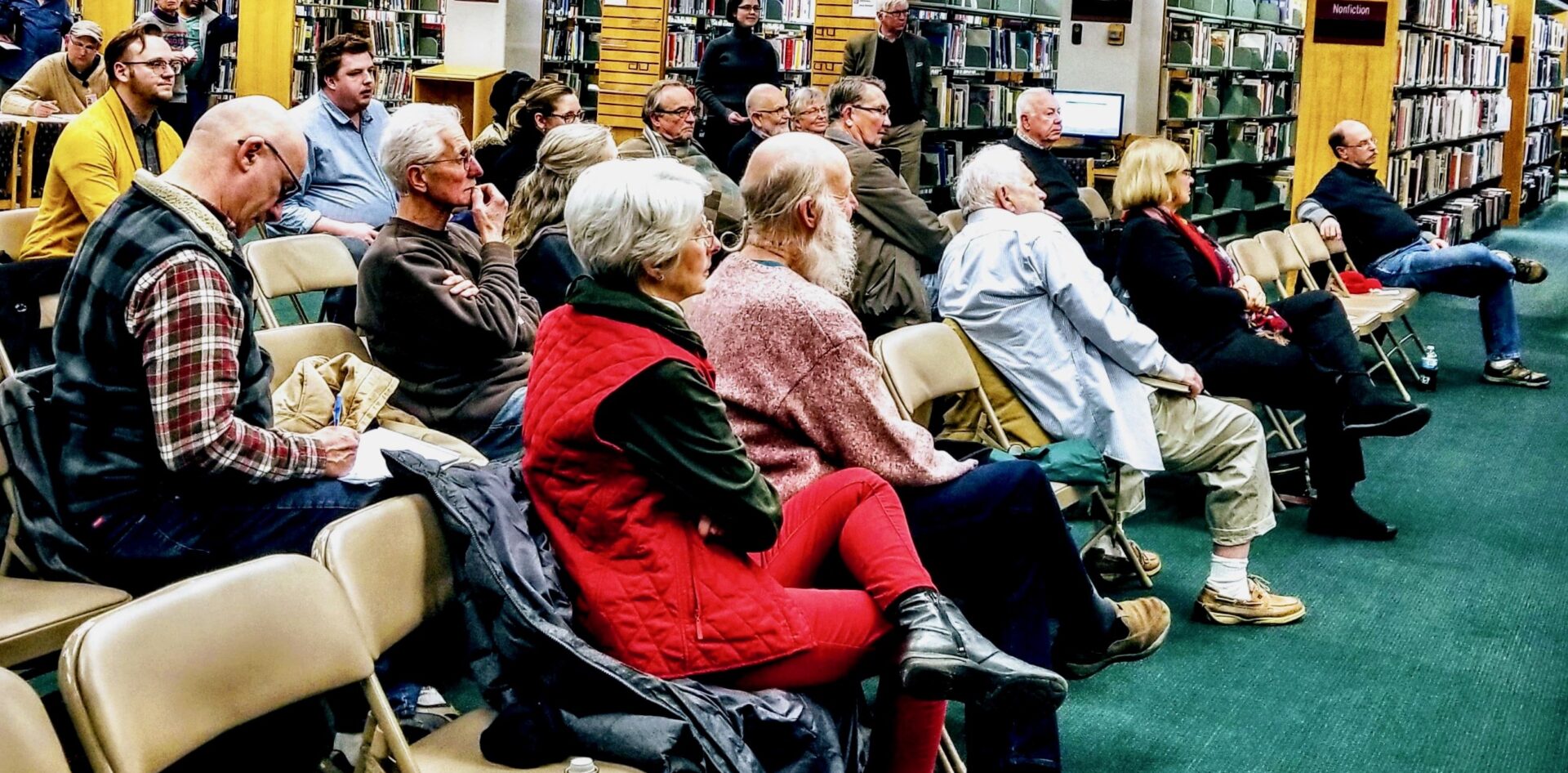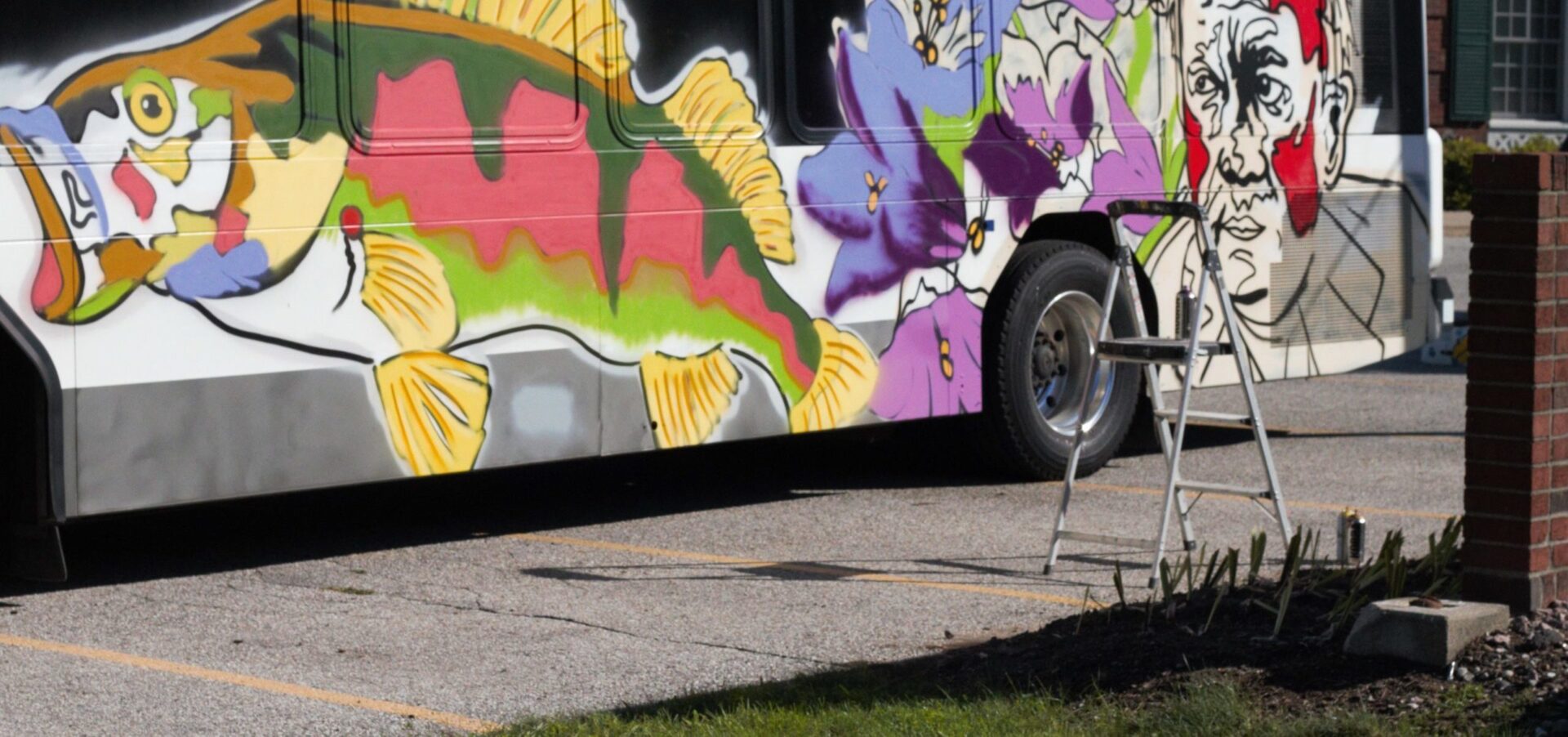
Civility panel (from left) Marcus Paroske, Rep. Donna Lisinski, Michael Reitz, Ryan Irvin (Photo by Darlene Carey)
By Jeffery L. Carey Jr.
Though no one offered any hard-and-fast answers to the country’s current rash of harsh rhetoric, a panel of communication experts at the Flint Public Library Jan. 15 suggested at the least it pays to listen well and try to understand opposing views.
An audience of about 35 attended the event, the latest Flint Area Public Affairs Forum. The topic was Bringing Back Civility: Engaging in an Era of Social Media with Jan Worth-Nelson, editor of East Village Magazine, moderating the discussion.
The panel included Marcus Paroske, associate professor of communication at the University of Michigan – Flint; Ryan Irvin, president and chief analytics officer for changemedia; Michael J. Reitz, executive vice president for the Mackinac Center for Public Policy; and Rep. Donna Lasinski, Michigan State House of Representatives, 52nd District.
Worth-Nelson opened the panel by suggesting sometimes the concept of civility in itself could be questioned, citing a teeshirt of her youth that read, “Well-behaved women seldom make history.” Still, she stated, for democracy to thrive, people with differing views need to be able to talk to each other, and posed the question, “Does civility matter in terms of a well-functioning democracy?”
Paroske noted the word “civility” comes from the Latin for “citizen,” suggesting our ability to interact with decorum and respect is crucial to political discourse. However, he questioned the premise of the word title phrase “bringing back,” saying there have been huge lapses of civility in American political life throughout its history.

Paroske, Lisinski, and Reitz (Photo by Darlene Carey).
An expert on the impact of social media on society, Paroske offered three distinct difficulties that social media brings. “First,” he said, “is the idea of universal communication,” which he implied was not realistic. Next he pointed out social media’s prevalent anonymity and its potential for both good and bad outcomes. Paroske suggested one benefit of this anonymity can be civil discourse, likening it to the “Federalist Papers” written in 1787 which were published anonymously under the signature of “Publius.” However anonymity is also creating a surplus of “fake news,” he said.
Paroske’s third point was that “the business model of social media builds incentives to create fake news.” He said this occurs because the platforms make money based on the number of hours people spend engaged.
Irvin expanded on the idea of engagement, commenting, “Social media plays into a lack of comity.” He said Facebook and other social media giants are built so that users “teach the machine” through prioritized algorithms, photographs and articles to bolster engagement.
“It’s collecting data about you,” Irvin said as he expounded on the agenda built into the social media algorithms, “it’s learning how your brain works, what’s relevant to you, what you will share.” According to Irvin, research shows negative media items get more clicks than positives, appearing to fuel incivility in social media.
“It’s the despicable and the deplorable that get shared the most,” Irvin said, suggesting that the algorithms cause us to see more of it, including a lot that is “not true.”
Irvin said Facebook uses hot button topics, such as immigration, to further divide people. “We sit behind a screen devoid of civility,” Irvin said, “and it emboldens people and worsens our discourse. We are teaching the computer.”
Reitz, of the Mackinac Center, an organization he said attempts to use a wide range of views to model civility in policymaking, stated, “If you want to see civility benefit a community, then you need a variety of viewpoints.” He defined civility as the “ability to disagree productively.”
“One view only is not interesting,” Reitz said. With a nod toward Midwestern courtesy, he suggested the people in the audience were likely to be more civil than people in the “D.C. Beltway.”
“We’ve learned how to interact civilly within our community,” he said. “It’s the Golden Rule. Treat others as you want to be treated.”
Reitz said he believes social media brings out the worst in us. His call to action was to bring back civility by focusing on what we can control.
“Social media overwhelms,” Reitz said, “and what we can do to possibly change things is presume good will about people.” He advocated attempting to understand other peoples’ motivations and stressed the importance of being open to other peoples’ ways of thinking, speaking, and viewing the world.
“Find points of agreement,” he said. “Is there a trend pushing us together that is greater than the one pulling us apart?”
House Representative Donna Lasinski complemented this idea by saying what she cares about most is getting things done for the community. “We put barriers in our own way,” Lasinski said, “but we should not think in terms of Democrat or Republican.”
She said the goal or intent of a conversation is to get something done. She stated that the types of conversations we tend to have “reinforce our own values” instead of seeking new or broader perspectives.
“Talk to people in a language they can understand,” she suggested. “Word choice is very important. Use peoples’ language to persuade them.” She said in talking to her constituents about climate change, for example, she discovered if she used the words “stewardship of the earth,” or “clean water for our children,” she found people more likely to agree that action is needed.
Lasinski also stressed not to feed the beast when someone is not being civil citing an example of people who do not know her and use social media as a platform to call her names. “Getting things done is worth it though,” she stated. “Life, liberty and the pursuit of happiness belong to all of us.”
The Flint Area Public Affairs Forum is sponsored by Baker College of Flint, Flint Community Schools, MLive Media Group|The Flint Journal, The Flint Club, Flint Public Library, Genesee Intermediate School District, Kettering University, Mott Community College, and the University of Michigan-Flint. Volunteers from these institutions work together to plan and host programs on critical public issues throughout the year.
EVM Staff Writer Jeffery L. Carey, Jr., can be reached at jlcareyjr@hotmail.com.








You must be logged in to post a comment.